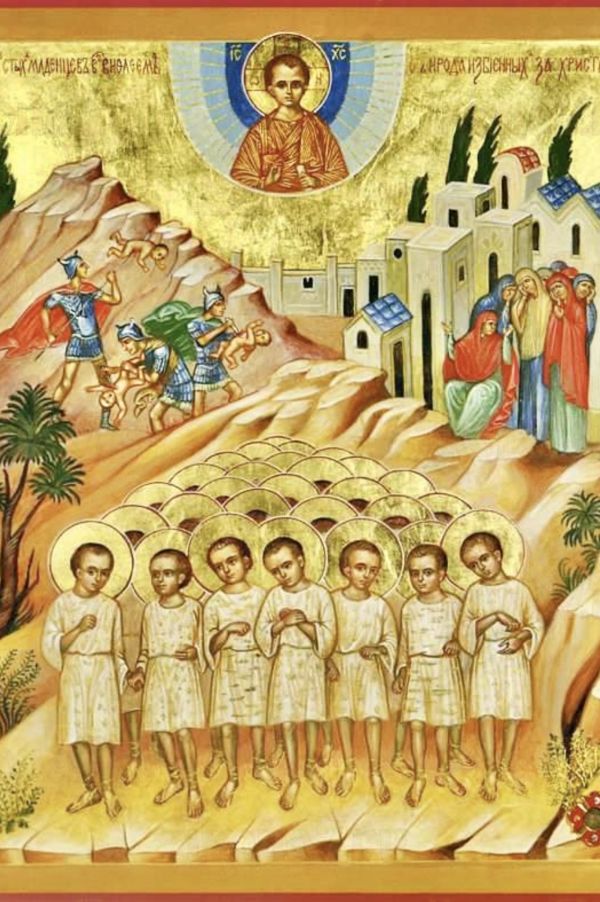Revelation, support, new Way and new People
(Mt 2:13-18)
In his last years, absurdly retreated in a restless adherence to himself, Herod caused three of his sons to perish and issued a decree with which he ordered that they were eliminated the most influential among the Jews - both to erase claimants to the throne that dissensions on the territory.
In the Gospel passage the king is an icon of the will of power that kills those who recall the childhood spirit of Christ: the Son of God placed his being in the Father’s Mission.
[This decentralized humility saves us not only in the order of grace, but also in that of human balance].
In Mt the Good News addressed to the converts of a Judaising matrix was proposed to reveal Jesus as the true fulfilment of the Prophecies and authentic Messiah - in the figure of the new Moses who implements the promises of liberation.
Like him, a persecuted who had to incessantly move and escape (cf. Ex 4:19).
According to a generalized belief in Judaism, the time of the Lord’s Anointed would have re-actualised the time of Moses.
But the ancient leader of «the Mount» had imposed a relationship between God and people founded on obeying.
The genuine and transparent Son, on the other hand, now proposes to the brothers of Faith a creative relationship of bliss and communion based on Similarity.
Relationship called to overcome the ancient justice of the Pharisees (Mt 5:20).
No fear therefore - even for us - of harassment, which must be factored in advance.
On the contrary, they can be taken as occasions for witnessing love and strong involvement in the very story of the Master - reinterpreted in the first person.
An unprecedented path, forge of inexorable contrasts.
The denial of the same Lord’s Way projects a dark atmosphere: it becomes a rejection of humanization... whose therapy lies in the trust of the «little ones», in the "childish" audacity that doesn’t know the impossible.
The innocent children of that extermination are figures of the sons of God of every century, such as ‘peers’ of Jesus, able to reactivate their spontaneous time - contrary to violence and death.
They are the persecuted and taken out because of the paradoxical subversive force of their tender Faith of ‘tiny’ and outspoken who let themselves be saved, and do not pay attention to roles.
The opposite of the cunning, servile and flattering types, devoured by calculation; always ready for deference to the fierce holders of power. Chiefs intimidated by the possibility that a soft and frail form of life can destabilize their positions.
But in the event of serious anguish suffered, even the energy of sadness that passes through painful events (vv.17-18) will make rediscovering what really matters.
This will allow us to be born again [in tears, in darkness] by separating ourselves from that kind of characters.
[Holy Innocent Martyrs, December 28]












